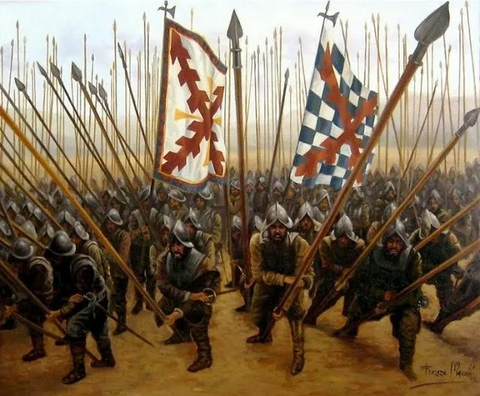Theophilus Chilton urges conservatives to rebuild the crucial social structures that modern life has so signally undermined: churches, the männerbund, and militias (and no, I’d never heard of männerbund either).
One of the banes of the traditionalist and neoreactionary is ideology. Now, any thinking person has a worldview, a comprehensive picture of how they view the world and interpret what they see around them that is based on their experiences, education, and background. However, this is not what is meant with the term “ideology.” Instead, an ideology is a set of beliefs – often unsubstantiated – which are held in a doctrinaire fashion, even in the face of any and all evidences that the beliefs are wrong. Moreover, ideologues will demand adherence to these beliefs, and will actively seek to ridicule and punish those who do not sufficiently fill out the list of checkboxes demanded by the ideology. In short, an ideology is a way for people to avoid having to think for themselves, to resist bringing their worldview into line with reality as it is manifested around them. The key to the concept here is not that of having a cohesive worldview, but the fact that this worldview is held in spite of any countervailing evidence. The ideologue refuses to consider any evidences or objections to his belief system, and will try to find ways (accusing his opponent of being racist, sexist, etc.) to get around having to deal with them.
One such ideology is modern American conservatism, along with its close relative by cousin marriage libertarianism. Just as much as modern neoliberalism demands a blind adherence to a rigidly held set of ideological positions which are increasingly out of step with human nature and reality, so also does modern conservatism. One of the most obvious examples of this is the conservative/libertarian idolisation of “rugged individualism” and “the sovereign individual”. Indeed, these folks have created an elaborate mythology which places the “rugged individual” at the centre of the American experience throughout our history. Like most beliefs built on a purely ideological foundation, this mythology is deeply held while being deeply out of touch with actual history and reality.
If I were to make this criticism on a typical conservative site such as Free Republic, it would be roundly met with automatic and unreasoning condemnation. How dare I suggest that Americans should be anything less than atomised individuals with no connexions or associations of community to each other! I must be the reincarnation of Josef By-George Stalin!
And yet, the whole history of America has been one of traditional communities acting in concert. The Revolution was driven by citizen associations formed in churches and taverns, who then fought as community militias. The settling of the West was not done by individuals, by and large, but by groups who traveled by wagon train for mutual support and self-defence. Even today, most local community matters are handled by citizens acting together. While the individuals in American history may have been rugged, they were not alone. America, like most other traditional Western societies from the classical period forward, was communitarian and group oriented.
In other words, there is ample evidence which suggests that our choices don’t have to be either Ayn Rand or Bernie Sanders. There is a third option, which is to recognise the organic bonds of community, society, and nation which bind men together.
This is important for us to keep in mind today because there are any number of influences due to the modernism of our world today which act to draw people away from community and the positive associative bonds we used to have with each other. One of these which I’ve discussed previously is the set of social phenomena surrounding the creation of suburbia after World War II. Our forms of popular entertainment work toward this end as well – instead of towns and villages coming together to celebrate births, marriages, and deaths with song, dance, and competitions, modern American man sits alone in front of his television or in a darkened movie theatre where he’s not allowed to talk to those sitting next to him. Modern American religion plays into this as well, with its selfish emphasis on “what church can do for me”, rather than the other way around, and where Americans “church hop” from assembly to assembly, never integrating into a body of believers, but always flitting about looking for the next new program for their kids.
I say that we ought to reject this modernism as inferior to what we once had. In place of the atomised individual of conservative and libertarian phantasies, those of us in tradition and neoreaction ought to seek to restore and then strengthen traditional social bonding institutions.
The three institutions which I’d like to discuss in particular here are churches, the männerbund, and militias. Each of these institutions play different, yet complementary, roles in communitarian society. Each also, I believe, appeals particularly to one of the three complementary and interdependent tripartite divisions (spirit, soul, and body) of the holistic makeup of man.




